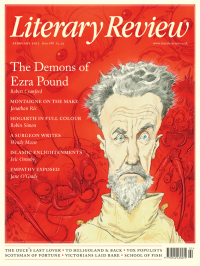Richard Overy
The Price of Peace
The Locomotive of War: Money, Empire, Power and Guilt
By Peter Clarke
Bloomsbury 418pp £25
This is among the first of what will no doubt be an avalanche of books examining the long-term effects of the First World War as we approach the centenary of the peace settlement in 1919. The ‘guilt’ of the title is the long shadow cast over the post-1919 years by the ‘war guilt’ clause in the Treaty of Versailles – considered a national shame by Germans, but equally troubling for liberal politicians and economists among the Allies, who worried that Germany had been too severely, even unjustly, penalised by the terms imposed. Keynes, perhaps the key figure in The Locomotive of War, made his early reputation as a maverick thorn in the side of British politicians with his indictment of the decision to impose heavy reparation demands on Germany, which would have taken until the 1980s to pay down.
The problem with Peter Clarke’s new book is that it is never entirely clear what he is trying to say. There are many strands of argument but they cohere uncertainly. To the extent that a central theme can be discerned, it seems to be that Britain and the United States

Sign Up to our newsletter
Receive free articles, highlights from the archive, news, details of prizes, and much more.@Lit_Review
Follow Literary Review on Twitter
Twitter Feed
Alfred, Lord Tennyson is practically a byword for old-fashioned Victorian grandeur, rarely pictured without a cravat and a serious beard.
Seamus Perry tries to picture him as a younger man.
Seamus Perry - Before the Beard
Seamus Perry: Before the Beard - The Boundless Deep: Young Tennyson, Science, and the Crisis of Belief by Richard Holmes
literaryreview.co.uk
Novelist Muriel Spark had a tongue that could produce both sugar and poison. It’s no surprise, then, that her letters make for a brilliant read.
@claire_harman considers some of the most entertaining.
Claire Harman - Fighting Words
Claire Harman: Fighting Words - The Letters of Muriel Spark, Volume 1: 1944-1963 by Dan Gunn
literaryreview.co.uk
Of all the articles I’ve published in recent years, this is *by far* my favourite.
✍️ On childhood, memory, and the sea - for @Lit_Review :
https://literaryreview.co.uk/flotsam-and-jetsam